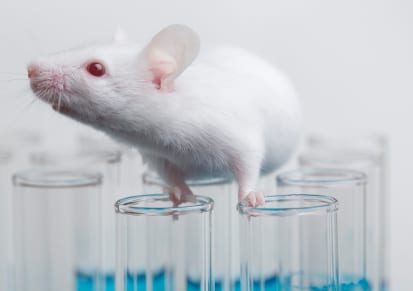
Even if you do everything right — exercise, healthy eating, no smoking– whether or not you’ll make it to the century mark depends to some extent on your genes.
FOXO3A
One of the important longevity genes seems to be FOXO3A. It’s been linked to lifespan in several experimental animal models. In humans, studies have shown that certain variations in the FOXO3A gene increase the odds of being extremely long-lived.
It’s not exactly clear how FOXO3A affects longevity because it’s known to play a part in several important cellular functions, including cell growth, cell specialization, response to oxidative stress and the regulation of cell death. Two studies published last month in the journal Cell Stem Cell added to the list of the FOXO3A’s talents.
Brain Function and Repair
Renault et al. and Paik et al. showed that in mice FOXO3A and related FOXO genes are involved in maintaining the brain’s ability to generate new cells, a function critical for both normal brain functions and repair in response to natural degeneration or injury.
New brain cells arise from a pool of specialized self-renewing cells called neural stem cells. The FOXO genes appear prevent the brain from burning through its supply of these important cells prematurely.
“Because [neural stem cells] have been shown to be important for learning, memory, and mood regulation, our findings could give insight into the decline in cognitive function that occurs during aging,” Renault et al. wrote in their report.
More research will be needed to fully understand the role of the FOXO genes in neural stem cells. Experiments will also be needed to test whether these findings can be extended to humans.
Despite the work that is left to be done, Paik et al. optimistically suggest the new understanding of the importance of the FOXO genes in neural stem cells may help guide the development of drugs that could help improve central nervous system health in the elderly and people suffering from neurodegenerative disease or brain injury.



